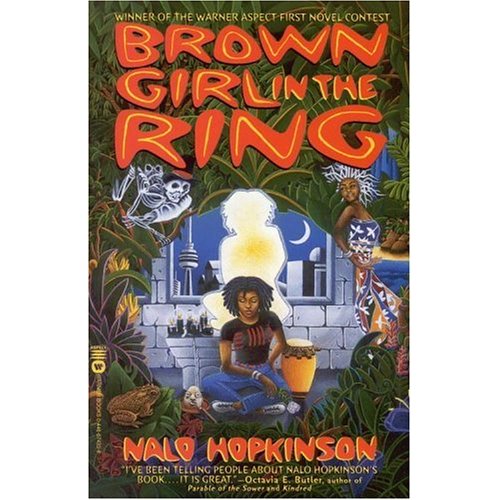

I've read a couple of reviews stating that her depiction of Toronto post-economic collapse would never actually come to be, but I think the worldbuilding is a kind of thought exercise demonstrating the lengths of abandonment and irresponsible behavior that city leaders could potentially go to if the management of a city was no longer profitable to them. In addition to its rich cultural heritage, another of this book's strengths is its post-apocalyptic vision. What I don't understand is why an evil mastermind like Rudy would be so lax in his instructions, allowing for a loophole in the duppy's behavior towards Ti-Jeanne. The duppy that is Ti-Jeanne's imprisoned mother ends up being able to help Ti-Jeanne because of a loophole in the villain Rudy's instructions for her. I do have some questions about the way that the story was resolved with magic. She pranced on long legs over to Mami, bent down, down, down ran a bony forefinger over the old woman's cheek." “You know so, old lady,” Ti-Jeanne rumbled. She kept her rhythm going, but even softer. “Prince of Cemetery!” Mami hissed, her eyes wide. Her lips skinned back from her teeth in a death’s-head grin. Her voice was deep, too deep for her woman’s body. Shadows clung to the hollows of her eyes and cheekbones, turning her face into a cruel mask. She rose smoothly to her feet and began to dance with an eerie, stalking motion that made her legs seem longer than they were, thin and bony. "Beside him, Ti-Jeanne giggled, a manic, breathy sound that made Tony’s scalp prickle. I loved learning about all of the spirits, and I was particularly struck by the ceremony where Ti-Jeanne gets possessed by a god/spirit known as Prince of Cemetery: The jumbies that featured in the former story are also present in the latter, from La Diablesse to the Soucouyants, and the fascinating and vivid lore is certainly one of the book's greatest strengths. I'm so glad that I read Baptiste's The Jumbies before reading Brown Girl In the Ring, because it actually served as a great primer and introduction for a lot of the Afro-Carribean mythology that characterize this story as well.

She must bargain with gods, and give birth to new legends."

With nowhere to turn, a young woman must open herself to ancient truths, eternal powers, and the tragic mystery surrounding her mother and grandmother. But now the monied need a harvest of bodies, and so they prey upon the helpless of the streets. The inner city has had to rediscover old ways-farming, barter, herb lore. "The rich and privileged have fled the city, barricaded it behind roadblocks, and left it to crumble. Spoilers follow, and a discussion of abuse. This is a review of Nalo Hopkinson's 1998 fantasy Brown Girl in the Ring.

"I can't keep giving my will into other people's hands no more, ain't? I have to decide what I want to do for myself."


 0 kommentar(er)
0 kommentar(er)
